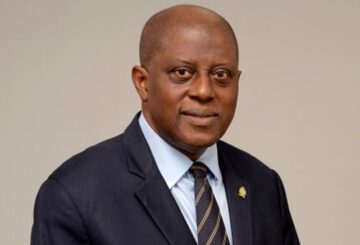
THE Nigerian Communications Commission (NCC), Office of the National Security Adviser (ONSA) and the Nigerian Civil Aviation Authority (NCAA) yesterday in Lagos met to hamonise regulation that will guide the use of drone in the country and the appropriate spectrum to be deployed for its use.
They say strict regulation of drone is necessary in view of its place in security and disaster management.
The forum tagged: “Stakeholders Consultative Forum on Regulation of Drones Deployment” was organised by the NCC at Lagos Sheraton Hotel.
The telecom regulator said there will be a review of the guidelines on the use of the 2.4gigahertz (GHz) and 5.8 GHz bands as the frequency for deployment of drones and other emerging technologies in the country.
It said the Unmanned Aircraft Vehicle (UAV) technology otherwise known as the drone has gone through massive development in recent years, and the market for it shows exponential growth, similar to all other significant new technologies.
Its Director of Spectrum Administration, Austine Nwaulune, said drones have found application in several areas that are contributing to the development of nations, which include security surveillance, shipping and delivery, disaster management, rescue operations, and healthcare, archaeological surveys, geographic mapping, law enforcement, safety inspection. Agriculture, wildlife monitoring, among others.
“Currently, the NCC in its effort to optimise usage and benefits of the spectrum is advancing the administrative standards by establishing technical parameters to use the 2.4GHz and 5.8GHz bands as the frequency for deployment of drones and other emerging technologies.
“Over the years, the Commission has had guidelines on both the use of 2.4 GHz and 5.8 GHz bands for Wireless Access System (WAS). And these are all license-exempt bands (ISM Bands) which studies have shown to be suitable for drone’s deployment globally.
However, the prevailing guidelines on the use of 2.4 GHz and 5.8 GHz band do not cover the general requirements for the control of drones and payload links such as on-board cameras, sensors, etc. some of these requirements include technical parameters such as transmitting power, coverage distance, modulation schemes etc. that were not envisaged at the time the existing guidelines were being crafted.”
In his welcome address, Executive Vice Chairman/CEO at NCC, Prof. Umar Danbatta, said the Commission is not unaware of the myriad of challenges such as vandalism of critical national infrastructure, kidnapping, insurgencies, terrorism amongst others confronting the country.
Represented by the Executive Commissioner, Stakeholders Management, NCC, Adeleke Adewolu, the EVC said therefore, the Commission wished to inform stakeholders of the appropriate spectrum for drones and its conditions of use in order to help in realising the set objectives of deploying them to tackle the security challenges and for commercial services too.
He said the guidelines for the use of 2.4GHz and 5.8GHz spectrum bands is presently limited in its condition of use and therefore requires amendments.
“To this end, the new draft guidelines have incorporated some changes which include but not limited to duty cycle, transmission, reception frequencies, power, distance, speed and weight. We believe these changes will give an added opportunity to the use of drones in the bands without causing interference to the adjacent and incumbent services, ” he stated.
He said the frequencies are currently unlicensed. “The Commission has temporarily identified and modified some conditions in the guidelines and authorised the operators, cleared by the Office of the National Security Adviser (ONSA), to use them in response to the request from the ONSA to temporarily use the Frequencies pending the revision of the guidelines,” he said.
Bringing in the European Union (EU) experience, Alexis Louis, said hamonisation of spectrum frequencies is critical. According to him, ITU members, including Nigeria will need to agree on enough spectrum bandwidth in the right bands for deployment.
Louis stressed that regulation through hamonisation is necessary to guard against interference and that there should be ECOWAS/Pan-African drone laws.


